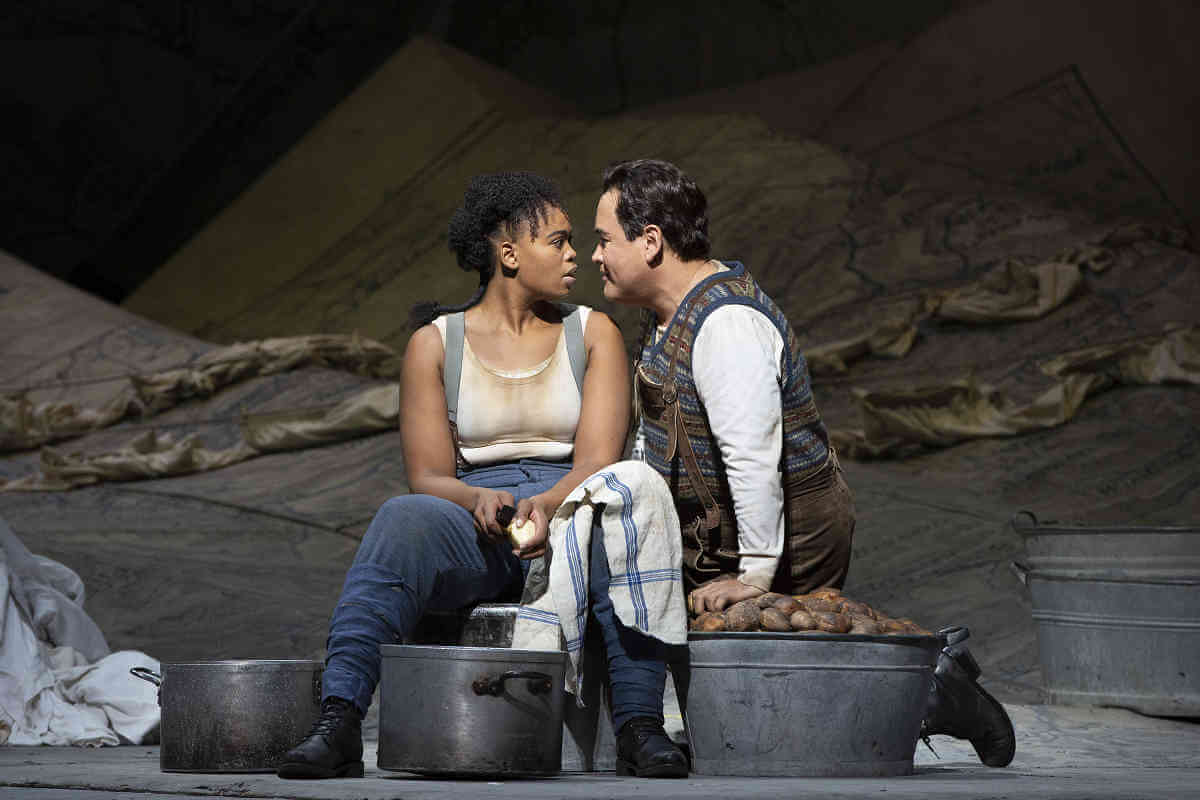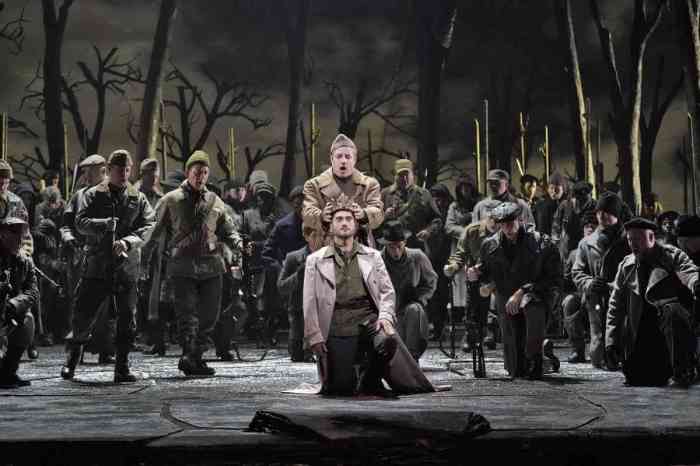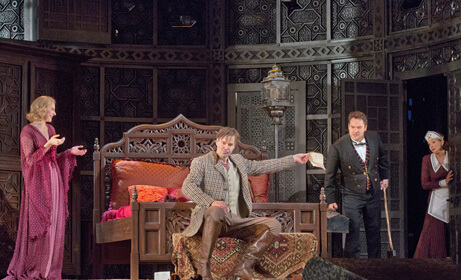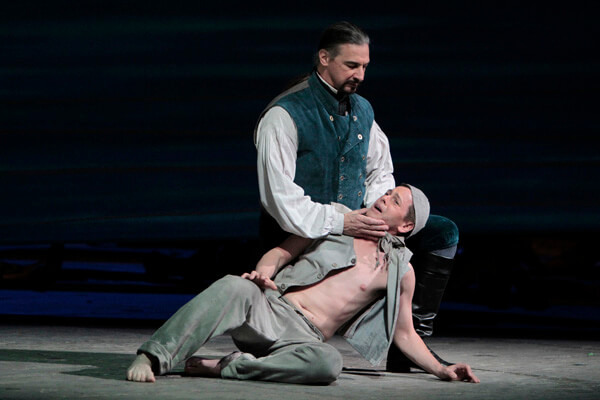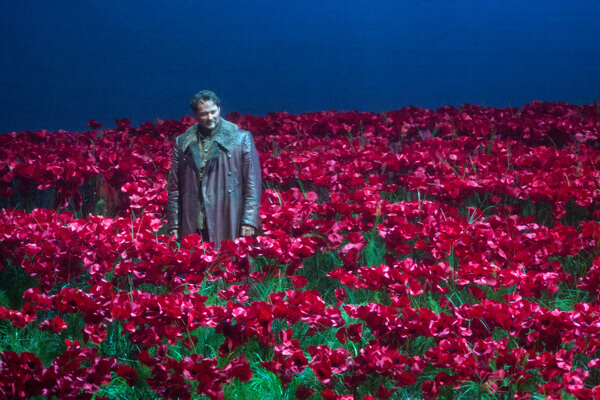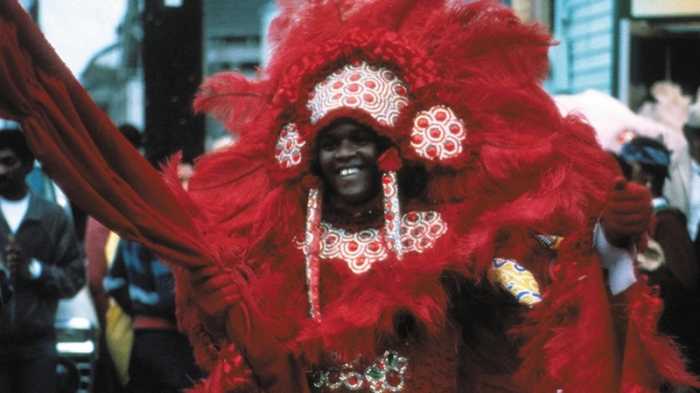February in New York City is no laughing matter but the Metropolitan Opera thawed our frozen funny bones with two delightful revivals — Donizetti’s bubbly opéra-comique “La Fille du Régiment” and Mozart’s darkly ambiguous dramma giacosa “Don Giovanni.” A raft of role and Met debuts added fresh zing to these revivals.
Pretty Yende and Javier Camarena managed to erase memories of Natalie Dessay and Juan Diego Flórez in the production premiere of “La Fille du Régiment” over a decade ago. The soprano and tenor both brought an open-hearted sweetness and adorable goofiness to their winning characterizations. Yende was a sprightly, tomboyish Marie but less manic in her comedic shtick than Dessay was. Her quicksilver coloratura soprano danced over the notes, and she was very free to add high-flying staccato variations to the second verses.
As her suitor Tonio, Camarena’s eager puppy dog manner and boyish silliness lit up the stage. He sailed through the nine high C’s in “Pour mon âme” with a rounder, sweeter tone than Flórez. He sounded even better repeating them for the encore reaching a total of 18 high C’s!
Where I must caution these two gifted singers is that they enjoy their flights into the upper stratosphere so much that their mid-range legato and soft singing suffers. In the mournful cavatina “Il faut partir,” Yende suffered from shaky breath control and wandering pitch. Her middle register can sound a little empty as if all the resonance has been pushed upward.
In Act II, Camarena almost cracked on soft high notes in “Pour me rapprocher de Marie” — the same notes that gave him no trouble belting to the Family Circle in Act I. It’s kind of like a ballet dancer who soars on the big bravura jumps but neglects fine motor coordination and stumbles in quick small footwork. But you have to love them both despite any critical caveats. Both Yende and Camarena possess an increasingly rare quality — charm.
Stephanie Blythe’s booming contralto and Junoesque dithering — there was always a divan nearby for the Marquise to collapse on with an attack of the vapors — proved a constant source of comedic joy. Maurizio Muraro’s walrus-like Sulpice was her equal in booming low notes and juicy comic characterization.
Kathleen Turner in the (basso cantante) speaking role of the Duchesse de Krakenthorp was game with passable French but she was scuttled by weak dialogue and clueless stage direction. Turner seemed too often at a loss trying to fill up dead spots and punch lines that didn’t land in her two dialogue scenes.
Enrique Mazzola’s sparkling conducting was full of bounce and go while revival stage director Christian Räth fully recaptured the fun and wit of Laurent Pelly’s droll production. Try to catch this in the house or transmitted in HD on the afternoon of March 2.
Yende and Camarena had been paired up earlier this season, this past November 14, in a revival of Bizet’s “Les Pêcheurs de Perles.” This revival of Penny Woolcock’s excellent production unfortunately amounted to a dilution of quality compared to the 2016 premiere. Emmanuel Villaume, who did a superb job with Massenet’s “Thaïs” a few seasons ago, failed to bring the fire and sinew to Bizet’s exotic score that Gianandrea Noseda did at the premiere. Bizet’s music sounded flimsy and cheap like second-rate operetta.
Camarena handled Nadir’s high tessitura with honeyed ease but generic international tenor style. He lacked the breath and dynamic control and command of French style that Matthew Polenzani demonstrated two years earlier. Yende made a beautiful, silvery-toned Leïla with a timbre and unaffected singing style reminiscent of Barbara Hendricks. Her interpretation seemed rather decorative and shallow until the Act III duet “Je frémis, je chancelle,” where suddenly a flesh and blood woman emerged. Maybe it was the presence of a new Zurga that inspired her?
Mariusz Kwiecien canceled after Act I and a dashing young lyric baritone Alexander Birch Elliot took his place. Kwiecien sang Act I solidly enough with that artificially darkened tone he has affected lately with only one hoarse high note to suggest vocal indisposition. Birch Elliott’s bright youthful tone and confident aplomb won the audience over immediately. Kwiecien canceled after Act I at the next two performances, as well, and Elliott took over the rest of the run. Bass Nicolas Testé returned as a mellow-toned, idiomatic Nourabad.
Woolcock’s modernized production put Bizet’s exotic folderol into a believable dramatic context.
A fascinating cast of newcomers managed to surmount the obstacle of Michael Grandage’s dead-on-arrival production of “Don Giovanni” with fresh voices and vital dramatic interplay. Young debutant maestro Cornelius Meister set things off at a clip that rarely slackened over the evening. There is more musical weight and variety in Mozart’s opera but Meister showed real rhythmic verve and fine-tuned control over the orchestra, something that bodes well.
Bass-baritone Luca Pisaroni made a striking libertine in his first-ever Don Giovanni. He is naturally charismatic and captured the seducer’s art of total concentration and attention on the object of his desire — making the victim think that in his eyes they are the only thing in his world. Pisaroni’s bass-baritone is somewhat less glamorous than his physique and better suited to defiance than soft seduction.
Ildar Abdrazakov’s richly sung basso cantante Leporello displayed shifting morals and a simultaneous fascination, repulsion, and envy toward his master.
French tenor Stanislas de Barbeyrac, Russian soprano Aida Garifullina, and Italian soprano Federica Lombardi made their Met debuts as Don Ottavio, Zerlina, and Donna Elvira, respectively. De Barbeyrac made a more heroic Don Ottavio than the usual suave lyric tenor, the tone and text assertively projected. “Dalla sua pace” lacked lyric sweetness so it was a happy surprise to hear accurate divisions in “Il Mio Tesoro.”
Garifullina was a pretty as a picture peasant coquette — prettier, in fact. Her light coloratura soprano is one part fruity and one part sparkly. She is the sort of camera-ready performer the current Met administration likes to push — however, her sweet soprano lacks substance and impact in such a large hall.
Lombardi’s Elvira was a lovely discovery — an elegant Mozart specialist with a creamy, even soprano with no register breaks and native Italian diction. This was a dignified noblewoman, not a hysterical virago (with Elvira you can go either way; the music and text support many approaches to the role). Don Giovanni wants Elvira to go away but I hope the Met wants Lombardi to return and often.
Rachel Willis-Sørensen’s Donna Anna was more passionate and volatile with a cool soprano projected with white-hot intensity. She collaborated brilliantly with the conductor, adding interesting variants and appoggiaturas to the second verses of Anna’s music. The versatile American soprano got a huge ovation at the final curtain.
Young bass-baritone Brandon Cedel made Masetto a sexy hothead worthy of winning Zerlina back from the Don. Stefan Kocán’s Commendatore was effective in the graveyard scene. With this winning team center stage and in the pit, the production faded into the background.


